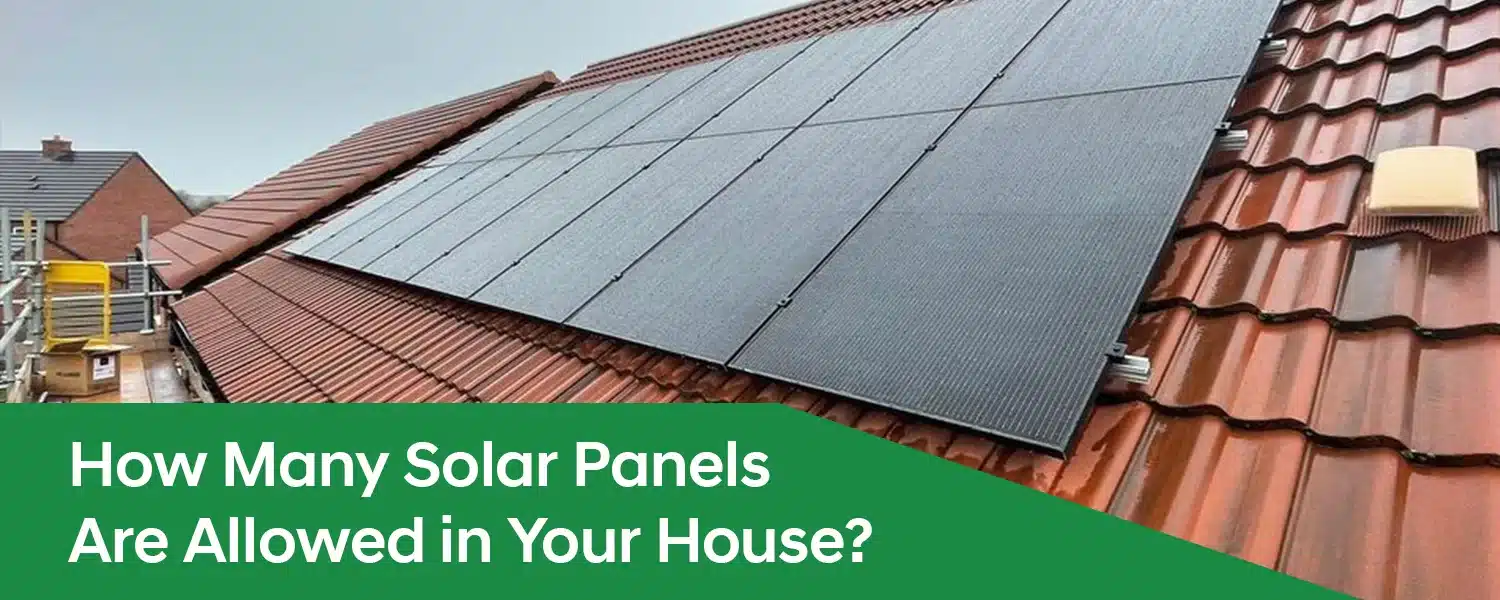In the UK, solar power is becoming increasingly popular as a sustainable and affordable energy option for homeowners. By installing solar panels, you can not only reduce your carbon footprint but also save money on electricity bills over time.
Determining the maximum number of solar panels allowed for homes in the UK can be challenging. This is because it depends on a lot of factors, like, roof area, location, any tall trees nearby casting a shadow on the roof, the orientation of the roof itself, your energy consumption, etc.
In this blog post, we will discuss the main factors that influence the number of solar panels needed in the UK. We will provide you with the information you need to make an informed decision. You can also get in touch with our experienced installers at Arc One, who can prepare a free feasibility report for you.
Let’s get started.
Assessing Your Energy Consumption:
The first step in determining how many solar panels you need is to evaluate your household’s average daily energy consumption.
The more energy your household consumes, the more solar panels you will require to meet your needs. Review your electricity bills over the past year to understand your energy consumption patterns.
Also, you have to consider factors such as the number of occupants, energy-efficient appliances like installed batteries and inverters, and heating methods used in your home.
The Sun Hours in Your Area:
You have to understand the level of sunlight in your area, which is crucial in determining the number of solar panels required.
In the UK, the climate varies, and the availability of sunlight hours is influenced by your geographic location. Generally, southern regions receive more sunlight compared to northern areas.
It’s important to note that solar panels generate electricity when exposed to daylight, so regions with more sun hours will produce higher energy output. Also, the location of the sun affects the amount of energy received. We will discuss this further in the next point.
Your Roof Size and Orientation:
The amount of available roof space and its orientation are important factors to consider when determining the capacity of solar panels you can install. The size of your roof determines the number of panels that can be installed. Also, the type of roof you have is important. For example, a metal roof can hold more solar panels, making it easier to install them.
As discussed above, south-facing roofs generally receive the most sunlight during the day, which makes them the optimal location for solar panels. However, east or west-facing roofs can also be suitable choices, although they may produce slightly less electricity.
It is crucial to take into consideration any shading from nearby buildings or trees. This can greatly reduce the usable space on the roof to install panels.
Understanding Solar Panel Capacity:
Solar panel capacity is measured in kilowatts peak (kWp). This tells us how much energy the panels generate when they are working at their best in full sunlight.
In the UK, a general rule of thumb is that a 4 kW system can generate around 3,800 kWh of electricity per year. However, the actual output may vary based on factors such as location, weather conditions, and shading.
Considering Your Energy Goals:
Your energy goals will also influence the number of solar panels you need. If your objective is to cover most of your electricity needs with solar power, you might opt for a larger system.
On the other hand, if your goal is to reduce your energy consumption and move towards renewable energy gradually, a smaller system may be enough.
Consult with a Solar Installer:
If you are still confused, then you should consult a reliable solar installer to accurately determine the number of solar panels needed for your specific situation and calculations of your current electricity usage and suggest you an appropriate number of solar panels. A professional will also evaluate the size of your roof, the amount of sunlight in your area, and other important factors. They will then recommend the best solar panel system for your home.
Final Words:
Using solar energy is a good way to have a sustainable future. The UK is a good place for using solar power. To figure out the maximum number of solar panels allowed in the UK and how many solar panels you need for your home, you should assess your energy usage, evaluate your roof space, understand the capacity of solar panels, and consider the amount of sunlight in your area.
As solar panel installers in ashford kent, we can easily say that switching to solar power in the UK is made easier with government incentives and the help of a solar installer. This allows you to contribute to a cleaner and greener environment. So, take the first step towards a renewable energy future and embark on your solar journey today!

